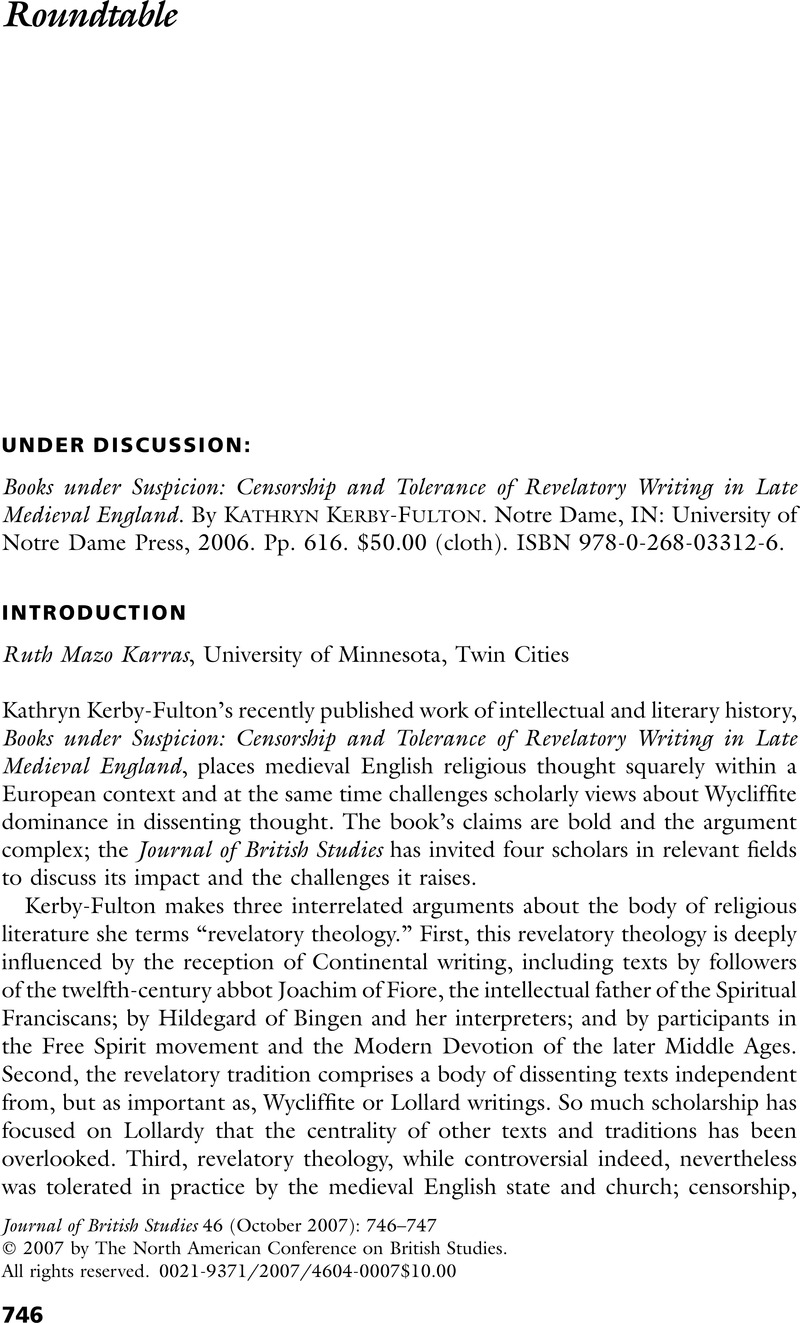No CrossRef data available.
Published online by Cambridge University Press: 21 December 2012

The author is indebted to Robert Lerner, Carolyn Muessig, and Barbara Newman for their help.
1 This was the council at Blackfriars, London, at which twenty-four of Wycliffe's teachings were condemned in 1382. An earthquake occurred during the meeting, hence the name.
2 of Bingen, Hildegard, ep. 15r, in The Letters of Hildegard of Bingen, 3 vols., trans. Baird, Joseph and Ehrman, Radd (New York, 1994), 1:58Google Scholar.
3 Ibid. 1:9. Also see ep. 169r, 2:123–25, and ep. 381, 3:170–174. See Kerby-Fulton, Kathryn, “Prophet and Reformer: ‘Smoke in the Vineyard,’” in The Voice of the Living Light: Hildegard of Bingen and Her World, ed. Newman, Barbara (Berkeley, 1998), 70–90Google Scholar; and Kienzle, Beverly, “Operatrix in vinea Domini: Hildegard's Public Preaching and Polemics against the Cathars,” Heresis 26–27 (1996): 43–56Google Scholar.
4 of Saxony, Jordan, On the Beginnings of the Order of Preachers 3.22, trans. Tugwell, Simon (Chicago, 1982), 6–7Google Scholar.
5 See, e.g., of Bourbon, Stephen, Anecdotes historiques, légendes et apologues tirés du recueil inédit d’Etienne de Bourbon, ed. de la Marche, Lecoy (Paris, 1877), no. 316, 264–65Google Scholar.
6 Gerhoch of Reichersberg is a case in point. See his De quarta vigilia noctis of 1167, ed. Sakur, Ernst, MGH, Libelli de lite (Hanover, 1897), 3:503–25Google Scholar.